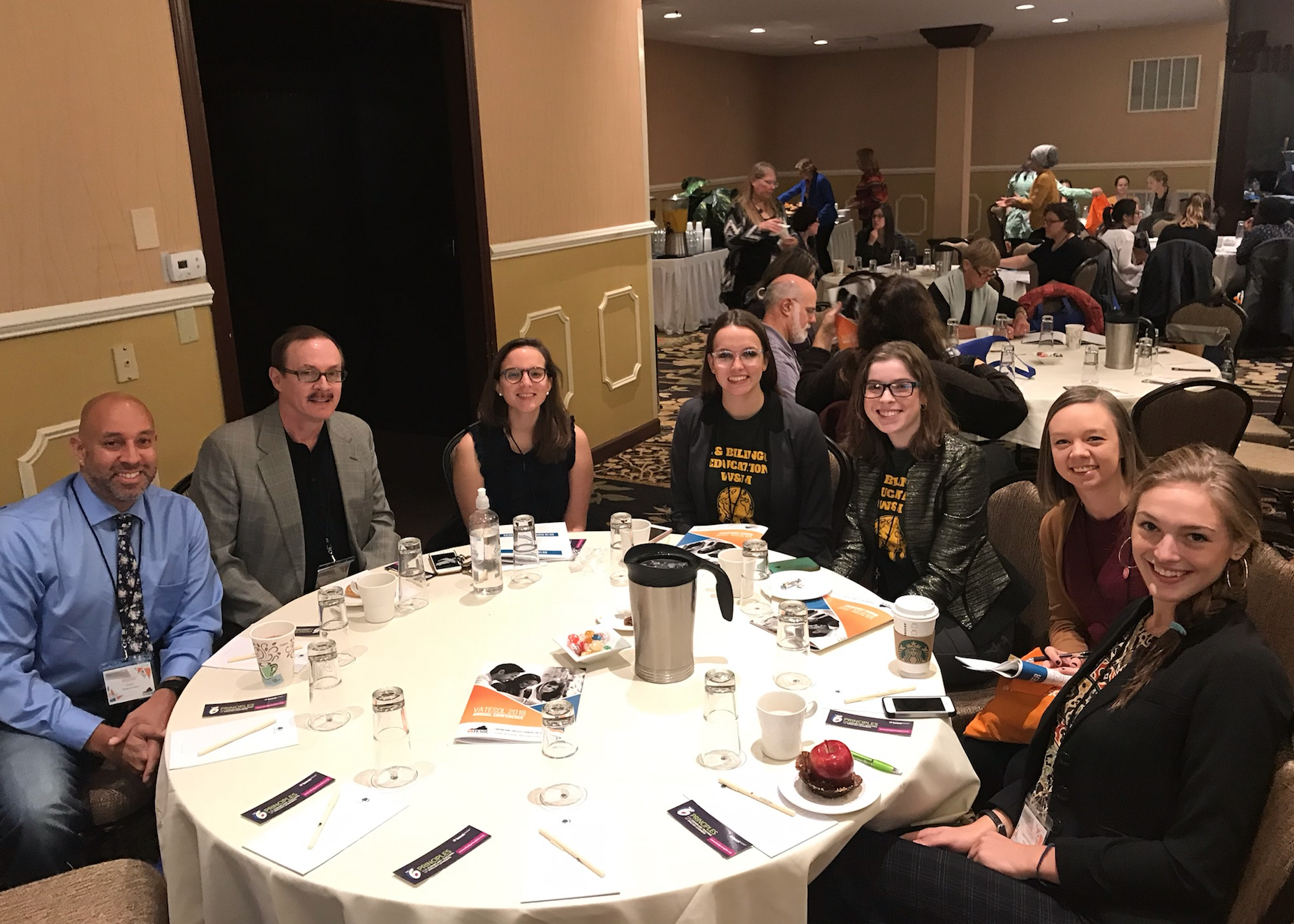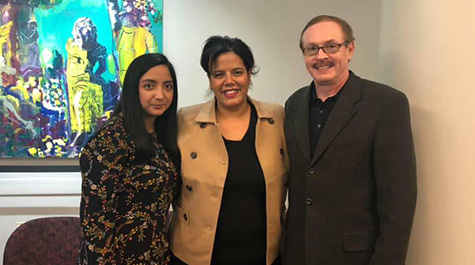Barko-Alva recognized with statewide Latinx Leadership Award
Her ability to inspire young people to pursue a career in ESL and bilingual education, along with her research and service related to bilingual education, was recognized recently with the Latinx Leadership Award from the Virginia Latino Advisory Board, which advises Virginia Governor Ralph Northam on issues of concern for the Latinx community in Virginia. The award highlights the work of individuals "working toward the empowerment and progress of the Latinx population in Virginia."
The challenge of succeeding in school while also learning a new language is one Barko-Alva knows all too well — as a teenager, her family fled Peru due to social and political turmoil and immigrated to the United States. Though a strong student, she struggled to learn in her new classroom due to the language barrier. Despite being told that college was not for her, she graduated high school and enrolled in college with the support of a social studies teacher and a cohesive support system. She majored in English and planned to apply to law school, wanting to focus on immigration issues. However, through a chance opportunity working with bilingual families and students, Barko-Alva discovered that education was the key to support.
Building on her own experiences as a bilingual student, she has worked as a teacher, facilitator, advocate and now as a researcher and professor to understand the complex relationship between language and learning to develop new methods of teaching English language learners.
 This past fall, she shared her story along with her research as the keynote speaker at the Virginia Teachers of English to Speakers of Other Languages (VATESOL) annual conference. Two current School of Education students, Emily Chaumont '18, M.A.Ed. '19 and Emma Muñis '18, M.A.Ed. '19, also presented at VATESOL. Both students are completing the ESL dual endorsement program, which prepares students to teach in ESL and dual language settings in addition to a concentration in either elementary, secondary or special education.
This past fall, she shared her story along with her research as the keynote speaker at the Virginia Teachers of English to Speakers of Other Languages (VATESOL) annual conference. Two current School of Education students, Emily Chaumont '18, M.A.Ed. '19 and Emma Muñis '18, M.A.Ed. '19, also presented at VATESOL. Both students are completing the ESL dual endorsement program, which prepares students to teach in ESL and dual language settings in addition to a concentration in either elementary, secondary or special education.In collaboration with Gladys Krause, assistant professor of math education, Barko-Alva is continuing to pursue research in dual language classrooms through a partnership with a local school district. In an elementary school where the student population is approximately half native English speakers and half native Spanish speakers, Barko-Alva and Krause have a unique opportunity to observe how students process learning in different languages within the context of core academic subjects (i.e., language arts, math, social studies, and science). The school offers a dual language program in which Spanish and English are each the language of instruction for half of the school day. Using data from her research in the district, Barko-Alva and Krause are creating methodology and learning techniques in order to understand the learning process in a Spanish-English dual language classroom.
The foundation of her research examines how teachers make sense of language use for academic purpose in dual language and ESL classrooms. She explores how teachers negotiate language practices designed to facilitate the integration of language and content during instruction. Understanding how students learn in their native language and applying that knowledge to comprehending English, also known as cross-linguistic transfer, is an important key in successfully educating bilingual students.
In addition to theoretical and practical study of language acquisition and instruction, William & Mary’s program in ESL and bilingual education focuses on supporting students and families, as well as enhancing the additive impact that students from culturally and linguistically diverse backgrounds bring to the classroom. Rather than diminishing the student’s native culture and language, new teachers learn strategies for integrating content and language instruction in a way that values students’ skills, languages and perspectives while broadening their knowledge in a new environment.
"I want to help bridge the gap between content and language knowledge as an ESL teacher," says Eliana Marrs M.A.Ed. ’19. "Advocating for my students is also a key piece of the profession that makes me passionate about the field."
